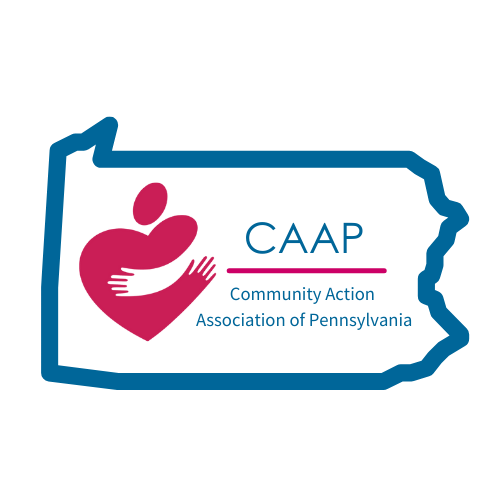CAAP Services
Presenting at Events: Harnessing the Power of CAAP Staff
Are you planning an event and looking for captivating and insightful speakers who can engage and educate your audience? Look no further than the Community Action Association of Pennsylvania (CAAP) staff! With our extensive experience and expertise in community development and poverty alleviation with a focus on workplace culture, our team is the perfect choice to enhance your event's value and leave a lasting impact on your attendees.
The Benefits of Inviting CAAP Staff to Speak at Your Event
Knowledge Transfer: By inviting CAAP staff members to present at your event, you are providing a unique opportunity for your audience to learn from experts in the field. Our staff will share evidence-based strategies, best practices, and innovative ideas that can be applied directly to their work in community action.
Networking Opportunities: Our staff is always eager to connect with like-minded professionals and organizations. By having us as speakers at your event, you create networking opportunities for attendees to engage with our staff, fostering collaborations and strengthening the community of individuals and organizations working towards poverty eradication.
Inspiration and Motivation: Our presentations go beyond sharing knowledge; they also inspire and motivate attendees. By hearing our staff's stories of success, resilience, and impact, your audience will
BONUS! CAAP Members only: Remember your CAAP Membership dues include one service or workshop each year!
Knowledgeable Experts: Our staff members are seasoned professionals with a vast wealth of knowledge in the field of community action. With years of experience working on the front lines, we have a deep understanding of the challenges faced by individuals and families living in poverty.
Exploring Perspectives: Our team consists of individuals from various backgrounds and disciplines, allowing us to present a well-rounded perspective on poverty-related issues and their solutions.
Engaging Presenters: We understand the importance of captivating the audience from start to finish. Our dynamic speakers are skilled at delivering engaging presentations that keep attendees interested, involved, and inspired. We use a variety of interactive techniques, multimedia tools, and real-life examples to connect with the audience on a personal level.
Relevant Topics: Our staff can discuss a wide range of topics related to community action, poverty reduction, and social issues. Whether your event focuses on policy reform, grassroots advocacy, program management, or any other aspect of community development, we can tailor our presentations to suit your specific theme and objectives.
In-Person Services
-
7 out of 10 Americans are one paycheck away from being homeless; even scarier, this affects underrepresented minority communities at a much higher rate. This is important not only to the work we do but how we do it. Psychological safety is the workforce's #1 most desired trait and an indicator of a high-performing team. Our presentations will educate attendees on how to implement a safe and productive workplace culture in our organizations. This will ultimately lead to more productive work environments that foster change and create higher-performing teams. A positive outlook in the workplace leads to a 31% increase in performance.
-
Unlock the Potential of Your Team
Are you looking to take your organization's success to new heights? Do you believe that your staff has hidden talents and untapped potential waiting to be unleashed? Introducing our comprehensive coaching and motivation workshop, designed to transform your team into a motivated powerhouse of productivity and innovation.
At Community Action Association of Pennsylvania, we understand that the real strength of any organization lies within its people. That's why we've developed an impactful coaching and motivation workshop that is tailored to meet the specific needs of your staff. We are dedicated to helping your team grow, evolve, and thrive in a rapidly changing environment.
-
Discover the Power of Generational Understanding in Today's Workforce!
Are you struggling to bridge the generation gap in your workplace? Do you find it challenging to foster effective communication and collaboration among employees of different age groups? If so, our Generational Understanding in Today's Workforce workshop is the solution you've been looking for!
Why Generational Understanding Matters:
In today's workforce, it's crucial to recognize that employees from different generations bring unique perspectives, work styles, and attitudes to the table. By understanding these differences, we can unlock the full potential of our teams and create a workplace culture that promotes innovation, productivity, and harmony.
What Our Workshop Offers:
Our interactive workshop is designed to help you navigate the complexities of multi-generational workplaces with confidence and ease for you and your staff. This comprehensive training will equip you with the knowledge and skills necessary to foster a positive work environment where every employee feels valued and understood.
-
Why Invest in a Workplace Values Workshop?
Build Stronger Teams: Our workshop brings employees together to explore shared values, encouraging collaboration, understanding, and mutual respect. By aligning individual values with the organization's mission, teams become more cohesive and united.
Boost Employee Morale: When employees feel a strong connection to their organization's values, they become more engaged and motivated. Our workshop empowers employees to embrace their values and connect them to their daily work, resulting in improved job satisfaction and increased productivity.
Attract and Retain Top Talent: In today's competitive job market, organizations that prioritize and communicate their values effectively stand out. By investing in our workshop, you demonstrate your commitment to creating a mindful and values-driven workplace, making your organization an attractive destination that top talent will seek out and remain loyal to.
Enhance Decision-Making: A strong understanding of workplace values provides a solid framework for ethical and principled decision-making. Our workshop equips participants with the tools to make decisions that align with their personal and organizational values, leading to improved judgment and more effective problem-solving.
Defining your workplace values is the most difficult part! Let the CAAP team walk you and your staff through an interactive workshop to help define what your group collectively values and what can guide you to success.
Come ready to work! This is not a lecture and present type workshop. It is only as good as the investment of the team coming to the table. We will create the space to get a little uncomfortable to ultimately help your team break through barriers.
-
This session provides a comprehensive guide to process mapping, teaching you how to create, analyze, and utilize visual workflows for continuous improvement. You'll learn to define process scope, track steps, and build clear maps, enabling you to identify inefficiencies, prioritize improvements, and drive organizational efficiency. This session will equip you with practical skills to enhance problem-solving, improve team collaboration, and streamline workflows.
-
No one has ever complained that something was too easy to read—and that’s exactly the goal of Plain Language. This session will introduce the core principles and standards of Plain Language and show how they can transform your communication. You’ll learn practical strategies to make complex information clear, accessible, and engaging, ensuring your audience understands your message the first time. Whether you’re writing for clients, partners, or the public, Plain Language helps you connect more effectively and build lasting trust.
-
Self-care is more than a trending concept—it’s a foundational practice for maintaining a healthy relationship with oneself and fostering resilience in daily life. In professional environments, self-care doesn’t have to be a solitary effort. When embraced collectively, it can transform workplace culture and reduce burnout.
This specialized training introduces Spoon Theory as a framework for understanding emotional and physical energy, creating a shared language around wellness. Participants will explore the dimensions of wellness and engage with practical tools that can be immediately applied to support empowered, team-based self-care. The session emphasizes how organizations can cultivate environments where staff feel supported, energized, and connected.
-
Spoon Theory is a powerful metaphor that helps explain the lived experience of individuals with invisible chronic illnesses—whether physical or mental. It uses "spoons" as a unit of energy to illustrate how daily activities can deplete limited resources. Unlike healthy individuals who typically have an unlimited supply of energy, those with chronic conditions must carefully manage a finite number of spoons each day.
This specialized training will explore the origins and principles of Spoon Theory, its relevance in professional environments, and how it can foster empathy and support for colleagues and community members living with chronic illness. Participants will engage in interactive discussions and exercises designed to build awareness, promote inclusive practices, and introduce a shared language for communicating energy limitations and support needs.
Even for those who do not have direct experience with chronic illness, Spoon Theory offers a valuable lens for understanding the physical and mental energy we all expend—and how we can better support one another in the workplace and beyond.
-
The Community Action Poverty Simulation is a learning tool created to help people understand the realities of the most vulnerable population. During the simulation, participants role-play the lives of low income families and realize the barriers individuals and families face on their road to self-sufficiency. Participants are assigned to family units and have the stressful task of providing for basic necessities and shelter on a limited budget during the simulation. They interact with human service agencies, grocers, bill collectors, job interviewers, police officers and other community members. Each family tries to provide food, shelter and other basic necessities, including health care needs, for themselves and their loved ones.
The simulation enables participants to look at poverty from a variety of angles and then to discuss the potential for change within their local communities. It was designed to sensitize those who frequently deal with low-income families, as well as to create a broader awareness of the realities of poverty among policymakers, community leaders, and others.
This service is offered by poverty simulation trainers from across the state at CAAP Network agencies and is based on availability.
** Pricing is based on time and needs of the organization. Price discounts available for non-profits, schools, and network agencies.
Sub-Contractor Membership Benefits
As a sub-contractor to a member of the Community Action Association of Pennsylvania (CAAP) you’ll have access to a wide range of benefits. You’ll gain access to advocacy on state and national issues, expert guidance on best practices, and evidence-based resources. CAAP works to strengthen local programs, improve service delivery, and enhance the impact of organizations working to alleviate poverty across Pennsylvania.
Affiliate Membership Benefits
As an Affiliate Member of the Community Action Association of Pennsylvania (CAAP), your organization will benefit from a broad range of valuable supports. Membership provides access to state and federal advocacy, expert insights on best practices, and a wealth of evidence-based tools and resources. CAAP is committed to helping organizations across Pennsylvania strengthen their programs, improve service delivery, and increase their overall impact in the communities they serve.
Interested in becoming an affiliate member? Email info@thecaap.org.
Are you a Community Action Association looking for New Solutions?
LMS Implementation for Community Action
CAAP’s Learning Management System (LMS) offers a streamlined, all-in-one platform for training and professional development. Designed specifically for Community Action Agencies, our LMS provides easy access to courses, resources, and certification tracking—empowering staff with the skills they need to drive greater impact.
State associations can partner with CAAP to implement this cost-effective and customizable training solution for their members. With consistent learning opportunities, detailed reporting, and scalable features, our LMS strengthens the entire Community Action network by enhancing staff development and improving service delivery.
Stay Connected with CAAP Cohort Calls, Webinars, And Deep Dive Series
CAAP’s Cohort Calls, Webinars, and Deep Dive series provide Community Action professionals with valuable opportunities to learn, collaborate, and share best practices. These interactive sessions cover key topics relevant to our network, offering expert insights, practical strategies, and peer-to-peer support. Whether you're looking to stay informed on industry trends or connect with colleagues across Pennsylvania, our webinars and cohort calls help strengthen the impact of Community Action.
Join the conversation and keep growing with us!


